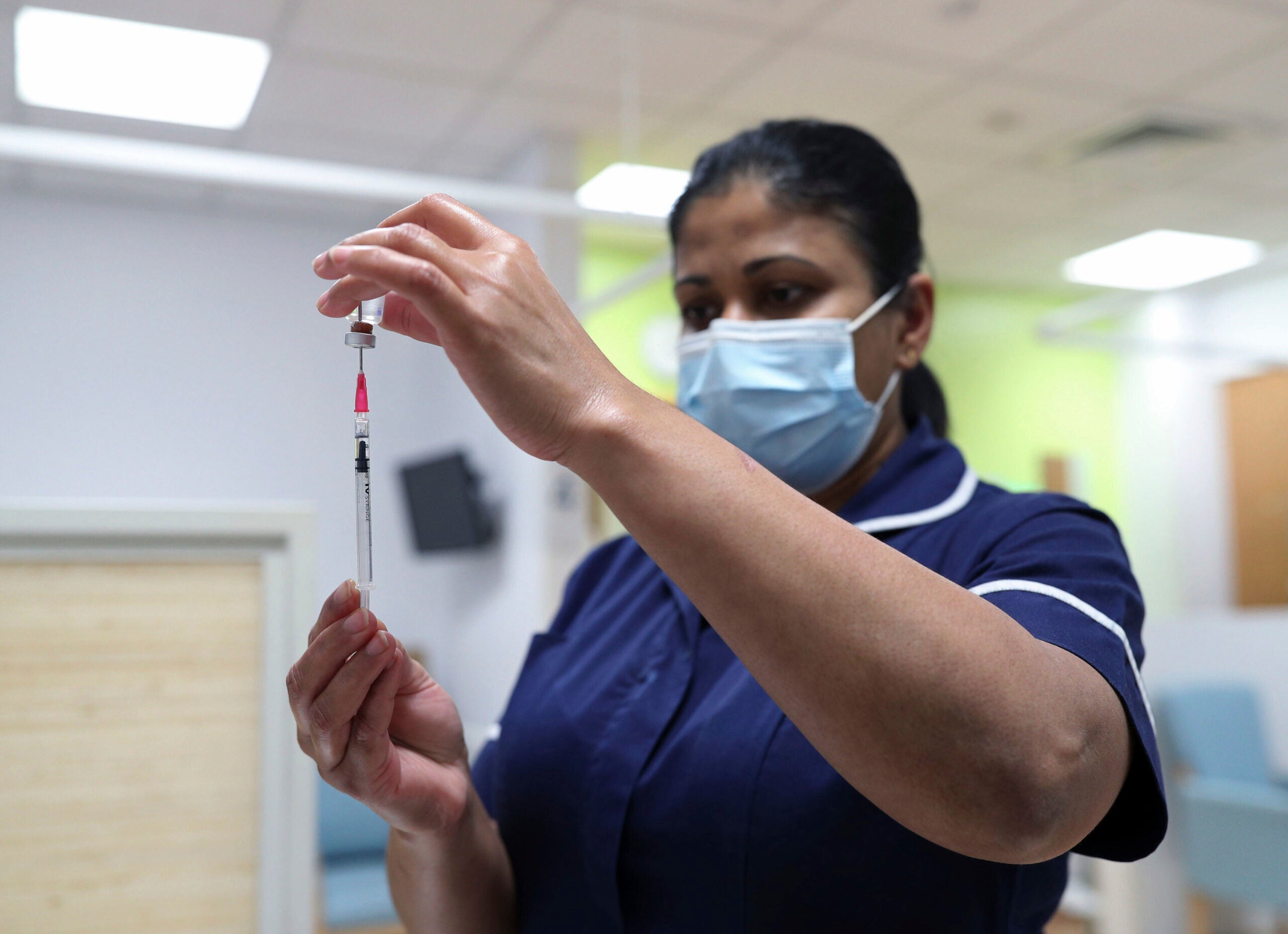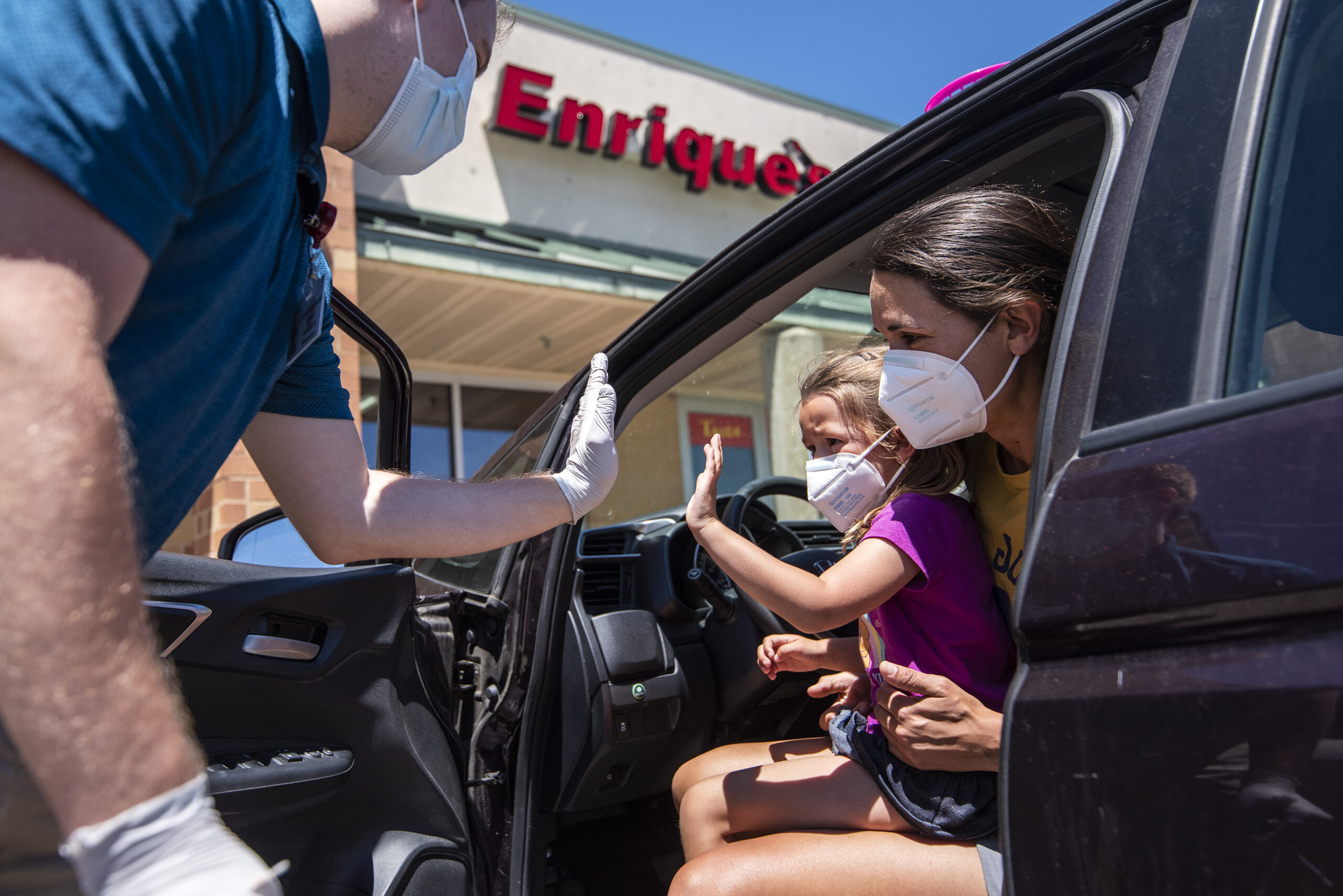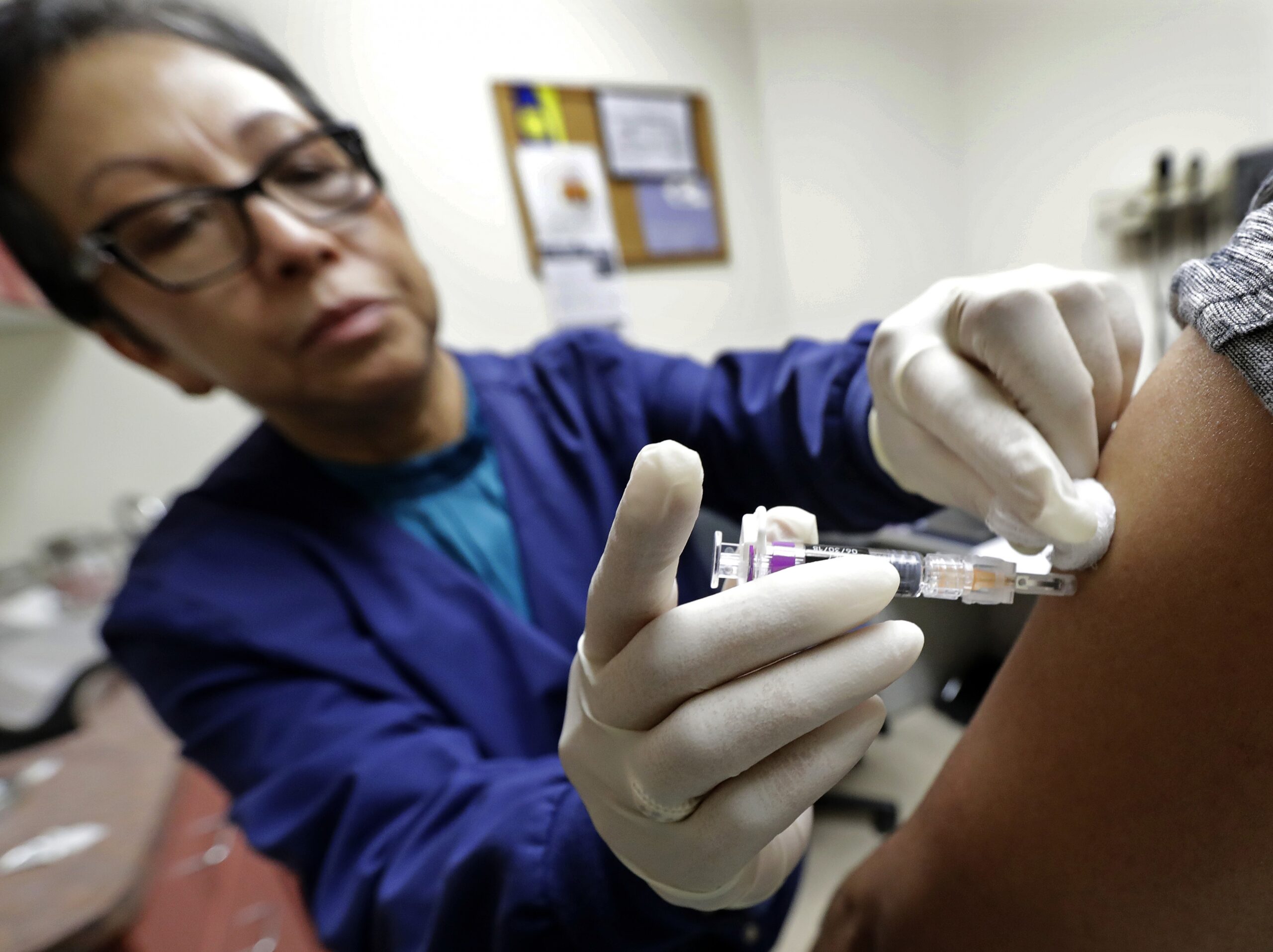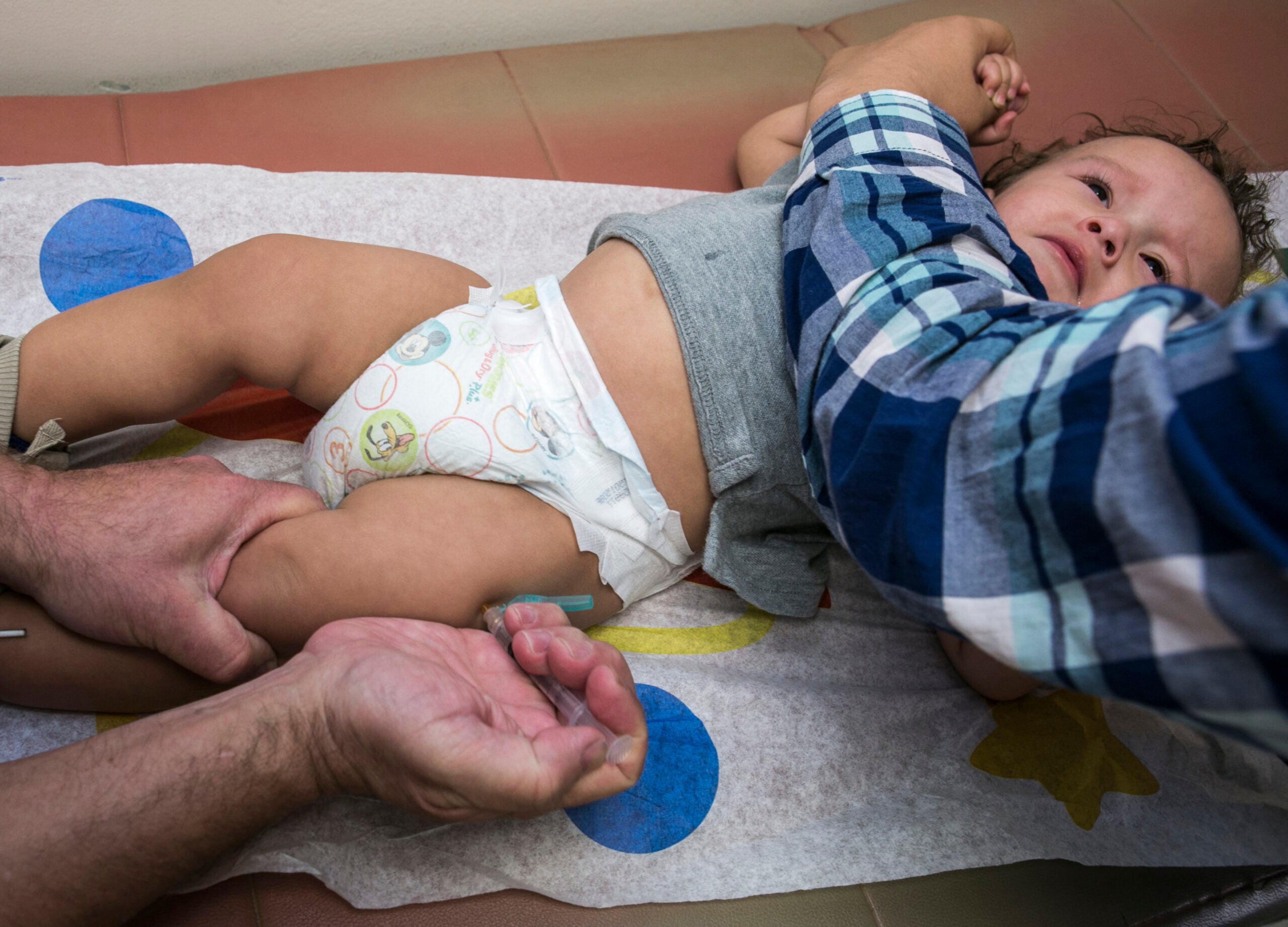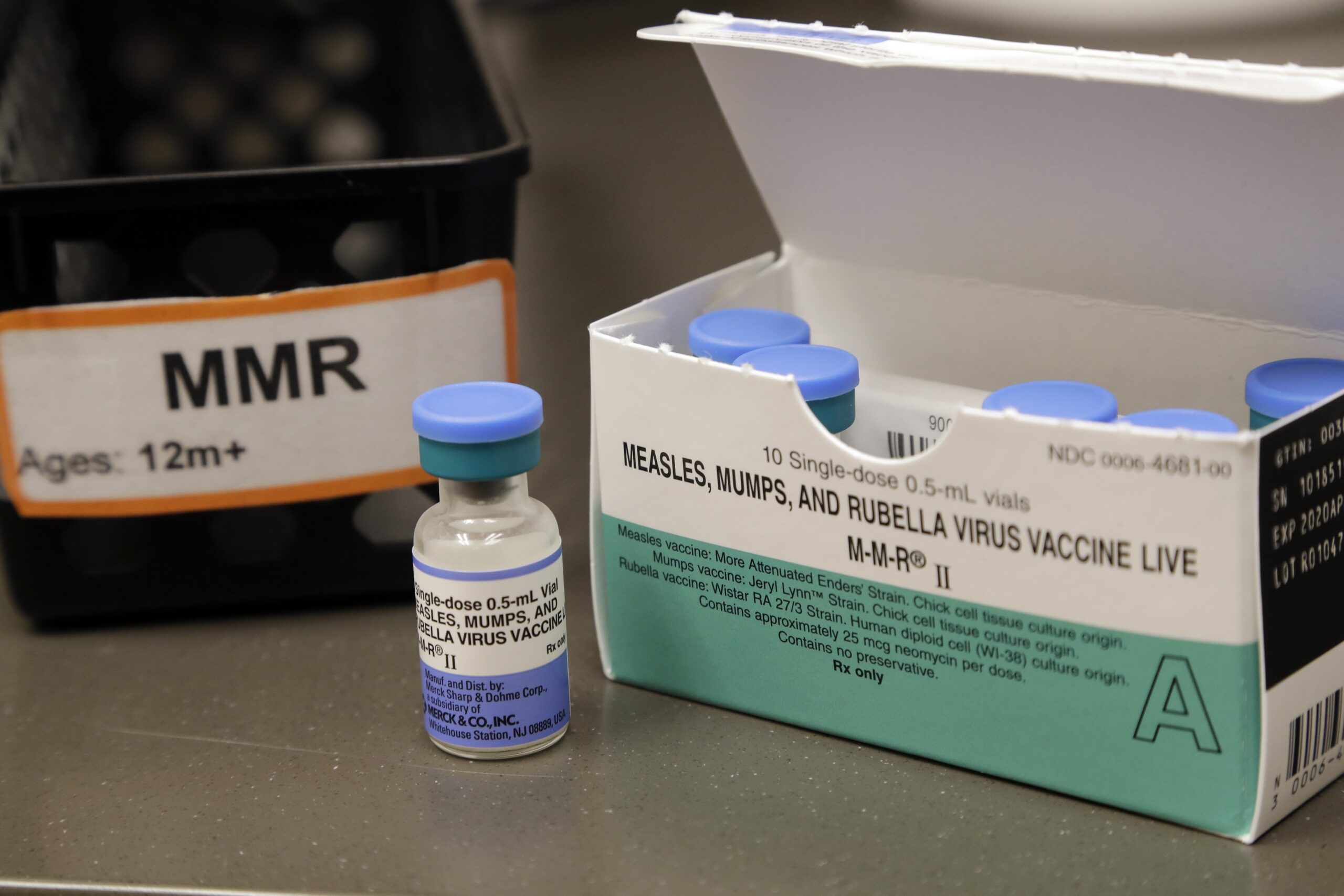State and rural health officials are not anticipating many challenges with distribution of the Pfizer coronavirus vaccine to rural areas of the state, which is expected to arrive sometime this week.
Rural health care providers had worried rural hospitals would not have enough dry ice or super cold freezers to store the Pfizer vaccine. The doses need to be stored at temperatures colder than winter in Antarctica to keep them from spoiling.
The first round of 49,725 doses is unlikely to create problems with transport and storage, according to Tim Size, executive director of the Wisconsin Rural Health Cooperative. Once removed from storage, the vaccine can be kept in refrigeration units at hospitals for five days.
News with a little more humanity
WPR’s “Wisconsin Today” newsletter keeps you connected to the state you love without feeling overwhelmed. No paywall. No agenda. No corporate filter.
“Since we’re only getting 50,000 doses statewide, the small amount that might be sent to each rural hospital or clinic is readily going to be able to be used in the five-day window that already requires refrigeration,” said Size.
The vaccine will be sent in batches to hubs in the state’s seven health care emergency readiness coalition (HERC) regions. Equipped with ultra-cold freezers, those hubs will then redistribute the vaccine to smaller clinics.
Rural hospitals and clinics are among facilities that are enrolling in the state’s COVID-19 vaccination program to receive approval to administer the vaccine.
One of central Wisconsin’s largest health care systems, Aspirus, has been preparing to distribute the Pfizer vaccine once it’s expected to become available this week.
Dr. Susan Schneider, a senior primary care physician with Aspirus, said during a press conference Friday that the system has been working to ensure it has ultra-cold freezers at various locations to store the Pfizer vaccine, as well as a courier system to transport the doses to rural clinics in Wisconsin and Michigan.
“We have made sure that we have a supply of dry ice, and we have a steady distributor for dry ice so that we can actually get those to the facilities. At refrigerator temperatures, again, it can maintain for five days,” said Schneider. “We have couriers that even though our system and our distribution area is very large — again, two states — we have couriers that are running those routes daily and actually multiple times a day.”
Schneider said it’s not yet known how many doses of the Pfizer vaccine Aspirus will receive. Nurses, doctors and those in long-term care facilities will be the first to receive the initial doses of the vaccine. Schneider said priority will be given to workers who are in contact with COVID-19 patients on a daily basis.
While Pfizer’s vaccine requires ultra-cold storage, the Moderna vaccine can be kept frozen at temperatures available in a standard freezer. Wisconsin Department of Health Services Secretary Andrea Palm highlighted in a Tuesday media briefing that the Moderna vaccine will be shipped directly to health care providers once it’s approved and becomes available.
“We are very committed at the state level to ensuring that this vaccine is distributed equitably, irregardless of whether you live in a more densely populated area or a rural part of the state,” said Palm.
While Size doesn’t expect problems with distribution, he said information is lacking on how many doses of the vaccine will become available after the first round. Size said that makes it difficult for hospitals and clinics to plan.
While COVID-19 cases have declined in the state, Size and others worry about cases increasing again with the Christmas holiday drawing near. With hospitals already running short on staff, he said staffing a mass vaccination program could pose a challenge. State health officials have emphasized it may be months before the general population can get vaccinated.
“And that means we really have to double down on our pleading with the public, to remind them that they’re the first line of defense,” said Size. “So social distancing, mask-wearing is as important — if not more important — now than ever.”
Wisconsin Public Radio, © Copyright 2026, Board of Regents of the University of Wisconsin System and Wisconsin Educational Communications Board.
